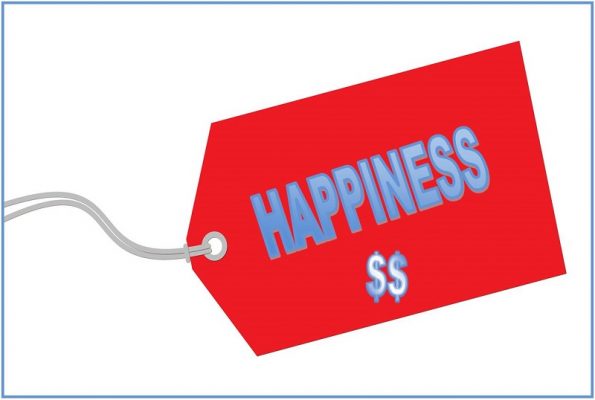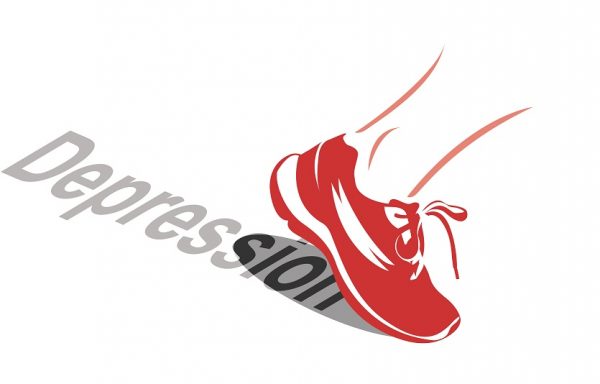Society and Culture
Bob Rich’s Self-Therapy Guide: The Cancer of Planet Earth
Bob Rich’s book From Depression to Contentment: A self-therapy guide is therapy in your pocket. Depression, anxiety, and other forms of suffering are all too common in our crazy world. Bob teaches you how to rise from that to “normal,” which is the walking wounded, then far above that, to inner strength enabling you to cope in any situation.
Recovering the Self published the first segment of Bob’s book in a series of posts starting from commentary on staying sane in a crazy world and ending with the quest for meaning via correspondence with young minds. The second segment of Bob’s work begins here with special attention to the meaning of depression, happiness, and resilience as well as the various influences in early and later life that make one vulnerable to depression.
In the previous post, Bob wrote about the modern-day myth of buying happiness. In this ninth segment of his discussion, he looks at what plagues our planet that is costing it its happiness.
The Cancer of Planet Earth
The last two posts have explained how the myths of society cause unhappiness.
The final myth is that more is better, without limit. It is not only responsible for depression, but also for the destruction of the entire life support system of our planet.
Research shows the opposite. Having less than you need in your circumstances is hardship, but too much also gets in the way of a good life. The perfect amount is as with food. A healthy eating pattern is when you’re well nourished, but eat less than you could hold. Similarly, the right amount of wealth is when you avoid hardship, but need to struggle and strive to meet some of your wants. Then achieving your goals results in pleasure instead of being a “so what” blip.
The problem is not wealth as such, but considering it central to your existence. In my novel, Maraglindi, Gerald, a minister of religion, explains it like this:
“When Jesus said it’s difficult for a rich man to enter heaven, he actually didn’t mean the wealth, but the attitude it engenders. Wealth is an obstacle because it becomes an addiction. The more you have, the more you want. You manage to have an acre of land? You want ten. If you have ten, you think you need a hundred. You can only satisfy this desire by competing against other people. Even if you’re invariably honest, your gain is someone else’s loss, exploitation and often even suffering. So, you cannot serve this master and also give the love of your heart to all who live, and to their Master. However, if you have wealth but refuse to be addicted to it, God will welcome you in heaven.”
“I’ve never heard it explained like this before.” The captain looked thoughtful. “That saying about the eye of the needle has always sounded like something thrown out to keep poor people in their place and not covet wealth.”
“Yes, that’s how the princes of the church use it, and priests follow. But Jesus befriended rich people and poor, regardless, so he couldn’t have intended that. He was, as I said, against greed, not against happening to be rich. Joseph of Arimathea was a rich man, and yet he has been venerated all through the ages.”
Wanting more wealth than you need can affect you in several other ways:
- Focus on wealth isolates people, same as any obsession. If you want to be with cheerful, helpful, cooperative people, you’ll find them among those who can meet their needs, but have no excess possessions to worry about. Tourists to poor countries are often amazed at the friendliness, love of fun, and welcoming cooperation they find there, compared to the mutual mistrust and aggressiveness so often found in (over)-developed countries.
- For many people, level of income, amount of stuff, is a competitive issue. There is always someone worse off to treat with contempt or condescension, and someone better off to envy. You can never find contentment if life is a race without end.
- When you focus on possessions, there is no such thing as “enough.”
- Often, high income has a cost. Virginia was the Principal of an exclusive K-12 girls’ school. All the Best People sent their daughters there. Her students included those with brilliant results in academics, and in every other field. She had a high income, and a high standing in the community.
She made an appointment, and told me she couldn’t stand it anymore. She loved teaching; contact with students, but rarely saw them. It was all administration, bureaucracy, politicking, fundraising, conflict resolution, buttering up wealthy parents and alumni.
I told her about burnout, but she answered, “It’s more than that. Eight years ago when I started, it was a challenge and a joy, but I simply don’t want to spend the rest of my working time doing this.”
I asked her to brainstorm about what else she might do that would maintain what she valued about her job, and removed the objectionable parts.
She canceled the second appointment, and I thought I’d failed her.
Six months later, she sent me a lovely email:
Dear Bob,
I cannot thank you enough for what you did for me. I’ve resigned, and trained up my replacement. Got a job as an English, Geography and History teacher in a State high school, at a quarter of my previous salary, and it’s like coming alive again. I inspire my students (well, most of them), have the joy of organizing the annual school play, and have the time for fun in my life again.
Bless you!
Virginia.
***
What I’ve explained concerns the individual, but a second problem with too much wealth is where it comes from, and what damage you do in acquiring it.
A major reason for dread, despair and unhappiness for many people is that they accurately see disaster looming. For an even larger number, this knowledge is there, but suppressed, denied, unacknowledged. That denial takes tremendous effort, which makes people tired, reduces their motivation (“There is no point to anything. Why bother?”), leads them to turn to activities like gambling, addictions, expensive holidays — anything to focus on other than the danger. Such people either ignore the facts, or are missionary in their spirit of denial. Those facts cannot be true; are due to a conspiracy, or based on false science, or whatever. It goes something like this, not in thought-out words, but underneath consciousness: “If that were true, I’d have to make complete changes in how I live. If that were true, my loved ones would be in terrible danger. So, of course it cannot be true.”
As I said, the global economy is healthy when people are chronically dissatisfied with their lives, so they’ll buy, buy, buy. But also, it can only stay healthy if it keeps growing. How well the economy is growing is assessed by looking at growth in the Gross Domestic Product (GDP).
I learn a lot from fictional characters I’ve invented, who then take on a life of their own. One said, “If I were an evil genius and wanted to design a system to cause maximum misery while destroying life on Earth, I’d construct the GDP as the measure, and economic mechanisms that collapse unless GDP keeps growing.”
Earth is a limited system. The only thing that grows without limits in a limited system is cancer. The global economy is a cancer that is well on the way to killing its host.
On my blog, Bobbing Around, read the essay “How to change the world” and you’ll see the evidence. The facts are also readily available in many other places.
I am not only talking about climate change here. We are also officially in the sixth great extinction event of this planet, with species dying out, on latest evidence, 1000 times the expected rate; and global economic collapse is looming, and only staved off with smoke and mirrors tricks.
I know this. (Or, OK, if you disagree, I fully and honestly believe my doomsday delusions.) All the same, I manage to live a contented life. If I can, you can.
Homework
Examine to what extent, if at all, these societal pressures have affected you in the past. Take your time — weeks of thought, journaling and investigation are OK.
Are some of your negative actions due to population pressure in the sense I’ve described?
Have you bought into any of the myths of society? Have they harmed you?
Can you choose to react differently?
– Dr. Bob Rich









One thought on “Bob Rich’s Self-Therapy Guide: The Cancer of Planet Earth”
Comments are closed.